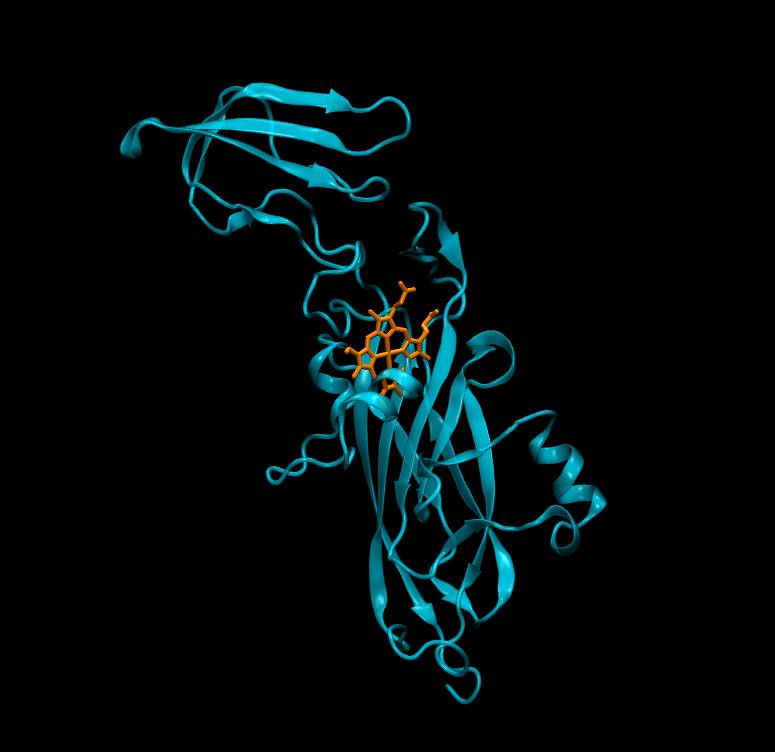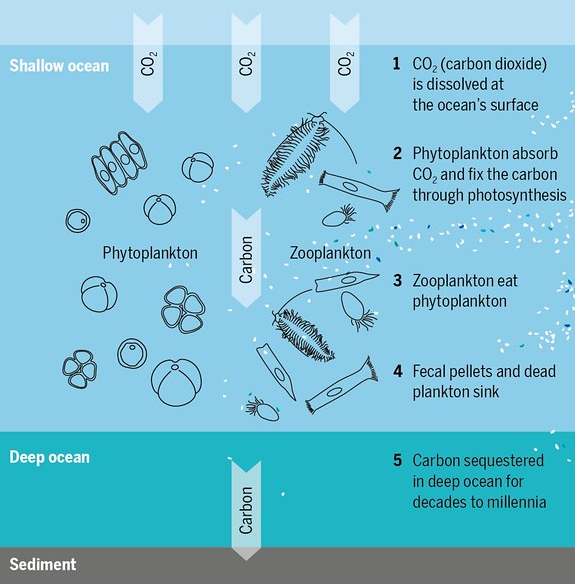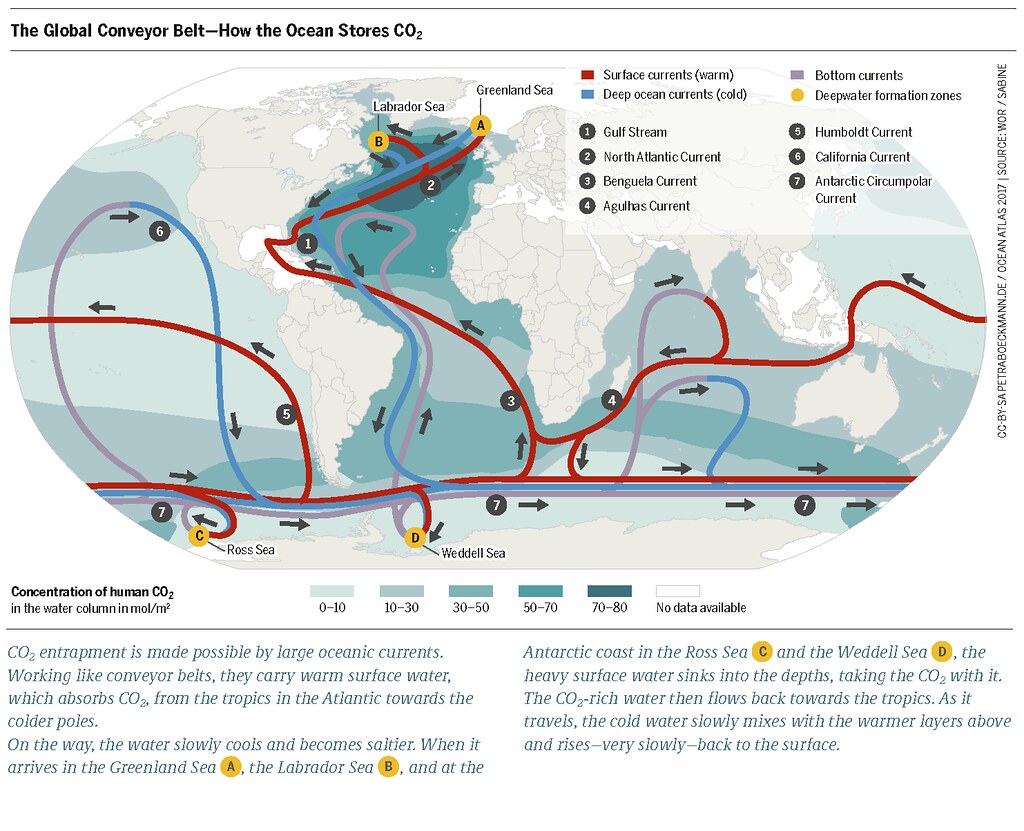Oh no (I hear you say) please, not another new story of contamination and its dreadful consequences!
And yet…
metals in the snow of the Antarctic Peninsula may be good news.
Ok, we’re not going to give industrial pollution a clean bill of health here: what I am talking about are metals that are essential nutrients for the primary producers at the base of the ocean food web: phytoplankton.
Metals are key components of biological molecules, including many enzymes and proteins (Figure 1). Here, they facilitate the chemical reactions that regulate living organisms, including all aspects of metabolism, such as breaking down food, synthesis of molecules and the transfer of energy.

Too much of a good thing causes harm, and in that case, we would talk about pollution. But not enough, and we are in the world of deficiency, or in the case of microalgae in the Southern Ocean, of limitation.
Instead of limitation, we want abundance in the Southern Ocean, not just on behalf of the ecosystem itself, but also for the whole of the global community: abundance here powers natural climate change mitigation, and we all know how much we need that right now.
Here is how it works:
The global carbon cycle is important for the Earth’s climate regulation, because carbon dioxide (CO2) in the atmosphere is a main contributor to the natural greenhouse effect that ensures temperatures on our planet are hospitable to life as we know it. But since the industrial revolution, human activities have greatly elevated CO2 levels in the atmosphere and these now amplify the natural greenhouse effect, leading to changes in climate and more frequent and severe, extreme weather events.
I trust that so far I’m not telling you anything new, but please bear with me…
The oceans are particularly important in climate regulation through absorption of excess heat, regulating temperature through global ocean currents and dissolution of atmospheric CO2 in surface waters. Phytoplankton utilise sunlight to photosynthesise and use the dissolved CO2 as carbon source to form their cell structures and multiply. In turn, they are consumed by grazers, which are consumed by predators…forming the base of the oceanic food web (Figure 2).

How does this link to the expedition?
The main Antarctic deep water branch of the global ocean circulation system forms in the Weddell Sea (check ‘D’ in Figure 3), just off to the east of the Antarctic Peninsula. Here, surface water cools on the continental shelf and sinks – and the sinking water ‘exports’ the decay products and faeces of a myriad of organisms into the deep ocean and with it, exports the carbon originally captured by the phytoplankton.

However, the productivity of the Southern Ocean may be limited by the availability of essential metals, such as iron and manganese, because of the remoteness and ice cover of the location: there is little exposed land from which, at lower latitudes, nutrients are supplied to coastal seas. In other words, there could be more carbon export to the deep ocean, hence climate change mitigation, with a more plentiful supply of essential metals.
This is where ‘metals in snow‘ come in:
Weather systems transport air masses and moisture across great distances and entrained with these, particles and nutrients that are deposited on ice sheets, ice shelves and the ocean surface. This atmospheric deposition is an important pathway, by which essential element are transported.
Dr Simon Ussher and Dr Angela Milne at the University of Plymouth investigate the processes that determine the carbon export in that region. With analysis of the snow samples collected by the expedition team, Angela and Simon will be able to investigate the possibility that increased surface melting of snow and ice on the Antarctic Peninsula, could make a significant difference to the fluxes of nutrients and the productivity of the Southern Ocean.
Featured Image: Cat Cameron, secured by rope to Martin Densham, taking ‘pristine’ snow samples for later analysis by Angela and Simon, following their precise instructions and taking great care to avoid contamination. Photo (c) Antarctic Quest 21.
Read more about this project with links to further reading here

“Dr Charlotte Braungardt is a freelance environmental scientist working through her consultancy Challenging Habitat. She is the scientific advisor for the Antarctic Quest 21 expedition.”
Many thanks to all of our friends, sponsors and supporters who are backing the Antarctic Quest 21 expedition, including:
NAAFI Team Army/Team Ethos Costain Group PLC BetterYou Ltd Applied Satellite Technology LtdGreencastle Consulting Klättermusen AB Fjellpulken AS Polar Latitudes Clean Planet Energy PlanetLabs.Earth LikeToBe.org LGfL Devon and Plymouth Chamber of Commerce Royal Geographical Society Prof Dr Ger Graus OBE Phil Carrotte Tim Ellis Twin Science & Robotics Verofax Limited Alpenverein Osterreich Beyond Exploration Shackleton Whisky Paul Read Martin Holland, FRGS USNAR Polar Science and Technology Program The Ulysses Trust Expedition Base Camp Anjuli Selvakumaran Elliot Brown Watches University of Plymouth Utrecht University The University of Manchester Durham University University of Tasmania Challenging Habitat AndrewSmedley PippaWhitehouse Colonel Paul John Edwards MBE The Honourable Alexandra Shackleton Lieutenant General Richard Nugee CB CVO CBE AngelaMilne Simon Ussher Nigel Marley MichielvanDenBroeke ImogenNapper Emily Whitehead Kate Retallick Claire Grogan FRGS Charlotte Braungardt
#wornbyadventurers #NAAFI1920 #TeamArmyUK #CostainGroup #betteryou_ltd #klattermusen #TheASTGroup #greencastleconsulting #Fjellpulken #expeditionfoods #polarlatitudes #theshackletonwhisky #rgs_ibg #ewhiteheaduk #unavco #oinkandsqueal #ragingbullbiltong #thegiftofoil #theludlownutcompany #ohso_goodforyou #nudiesnacks #pearlscakes #britanniaassociation #request2021#liketobe.org #ceraphienergy #AndrewSmedley PippaWhitehouse #AngelaMilne Simon Ussher #Nigel Marley #MichielvanDenBroeke #ImogenNapper